
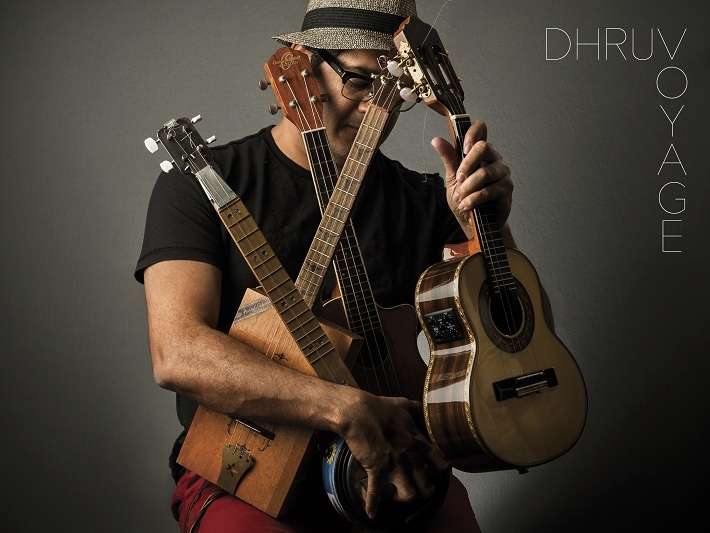 Photo Courtesy: Varun Mehta & Arnab Chaudhary
Photo Courtesy: Varun Mehta & Arnab Chaudhary
Bann Chakraborty: About the new album; how did you come to it and how long did the process take?
Dhruv Ghanekar: Very long, too long. We were planning it for over three years. But, it’s been a very busy three or four years for me. Moving on from Blue Frog, and setting up this place, honestly, my commitments have been extremely challenging and very time consuming, so it’s taken a back seat. It’s not like I’ve been working everyday for three years, that’ll be crazy, but I’ve been working off and on. I recorded the bulk of the album year before last, and last year. In 2012, some of it in 2010, and in 2013 I went to France to record with some musicians. So, I’d say we’ve been woking on it for three to four years. Last year I was not able to finish it up because I was busy with all my other stuff. We started mixing the album last year. It’s taken about an year for the mixing also.
BC: Tell me a little about the writing process.
DG: I started writing a bunch of material right after I finished my first album, right after the touring. I put this band togther with Gino and Sheldon which was, for me, a fantastic exercise. I started writing for musicians that I could actually play with. That is so important. But then, obviously the writing for that band was very different from the other stuff that I wanted to do which was far more elaborate, well produced, and vocal. So, I kind of started toying with the idea of doing something with musicians from north and west Africa. I sort of started conversations in my head; ‘How would this sound with this’. The process started a few years back with me thinking about how we could sort of mix the two cultures. I had been listening to so much African music. Some of the other songs were sort of planned in a way; Raul Midon came back a few years ago to play at Blue Frog, and I was sort of responsible for bringing him down becuase I wanted to work with him. When he was here, he came and recorded one song. Étienne M'Bappé who’s this great bass player, came down to Blue Frog, so I got him to work on a couple of tracks. So, there were musicians that would come down on and off, and would contribute to the songs. But then, last year I had been talking to this amazing drummer called Karim Ziad, whose music I’d been listening to for the last ten years. I always wante to do something with him. So, I chased him for about a year, and finally got his time and went down to Paris last year and recorded with him and Linley Marthe who is this incredible bass player. They’re both ex-Joe Zawinul. So, there is a tune in the album which is sort of a tribute to Joe Zawinul. They played on that and a few other tracks. These conversations soon became an obsession – that I have to work with them.
BC: Did you travel to have the chance to record with each of these artists?
DG: It’s been recorded in different places around the world. One track’s been recordded in LA at a friends studio, who is a violinist with Meat Loaf. Then there is this beautiful Bengali baul track that we recorded with Kartik Das. So, there were various people that I worked with in various places. But, it was the putting together of the tracks that takes time.
BC: But, in terms of music and sound, is the new album very different from what you have done earlier?
DG: Completely different.
BC: Is there a genre that you’d like to define it to?
DG: World rock/alt rock/fusion.
BC: You were also telling me how there is a lot of vocal writing on the record.
DG: Yes there is. On seven out of the nine tunes on the album.
BC: Who wrote the lyrics?
DG: A lot of people worked on it. Different songs were written by different people. Raul wrote a part of the lyrics for a song, and for the same song Etienne also wrote lyrics in Cameroonian. There is an Assamese song which I have sung with Kalpana Patowary – who also wrote it. Ila Arun has sung one song, which she wrote the lyrics to. There’s a beautiful song which my wife Ishita wrote, and Mehnaz who wrote the English lyrics as well. Kartik wrote the baul song.
BC: So, while you had different artists writing, did you have a particular thought for the album, or was it very instinctive?
DG: See, the way I see it, is looking at different cultures through my lens. So, that lens is what is really the cohesive part of the album. It’s my take on how north African music sits with Rajasthan, and how Maghreb music sits with Assamese music. These styles will generally never be heard together because they’re so varied, but there was something in there, from the way I heard it. I thought it would sit well. I don’t know, it’s hard to describe it in words. It’s only when you hear it that it’ll make sense. I guess, it’s like a trip around different kinds of music from certain parts of the world, music that I’ve been listening to for the past few years, through my Indian lens.
BC: And, what is that Indian lens like?
DG: It is what it is. You know, my influences, quirky-ness, and tastes. It’s all the kind of music that I like listening to and music that I’ve grown up listening to.
BC: Now that you’ve finished work on the new album; what has your experience been like?
DG: I am exhausted right now, honestly. I am relieved to be putting it out. It’s a lot of work man, putting music like this out. It’s not simple music to put out, and it takes a lot of time. I think, the concept of an album is dying, or dead. I don’t think it’s relevant anymore, it’s becoming more irrelevant now. Mostly, people’s attention span has reduced dramatically. It’s not even like four minutes anymore, it’s more like 60 seconds. So, with that, the way we make music and the way we communicate what we have to commincate, has to change. There are still people who’ll put out albums, which is great. But, for the rest of us, for me at least, going forward I will put out maybe one song a month. That’s my pledge.
BC: Interestingly enough, we had a similar conversation at the IMW Focus Group Sessions discussing whether albums make sense anymore.
DG: I think the concept of an album is more from the artist’s point of view than the listener’s. Listeners don’t give a shit, because they usually stumble on to stuff. I’m not talking about listeners that are following you, I’m talking about the rest of the universe. Usually some friend will share something on social media, and people will just stumble upon it. Like we do on Facebook. And, people will listen to it for 60 seconds and decide with a yes or no. If they say no, they move onto the next thing.
BC: You think the next album will be something completely different ?
DG: I can’t tell you anything about it because, honestly, I don’t know what I am going to do. But, I know I’m still mulling over it.
BC: I’ve heard a lot of different music that you’ve written in the past, from Chakravyuh to Bombay Black, and Smokin’ Guns soundtrack. It seems very versatile, and I’m wondering whether current music and sounds from around the world are influencing you in any way.
DG: Absolutely. I am listening to a lot of music, too much actually. Part of it is because of what I do in the day ; I’m forced to. People will throw stuff at me which I haven’t heard before, which is always great. I’m always open to new things, whether it’s electronica or anything. I always want to hear what’s new. For me, this is all I do. It’s not like a side project thing, this is it. So, I want to be in the fucking anus, I want be on the head, I want to be everywhere. I want to know everything and I think it’s really important for us to be super aware of everything. If journalists are aware of music and most guys who write music, why shouldn’t musicians be. I think the whole zamaana of ‘I’m just a metalhead or I’m just a rock guy’ is over.
BC: Being a musician I always found it scary when I met people who are brilliant musicians, but are stuck in a zone of sorts.
DG : That’s true. I guess, it has a lot to do with when we were all young. When we were young we used to be a little sutbborn and had a smaller friend circle; it’s very insular. A lot of it has to do with the upbrining. I come from a middle class family. I used to listen to Indian classical music and old Hindi music, but then in my teenage I started to listening to jazz and all this other music. So, there’s already this musical schizophrenia that is building in your mind. I like R.D. Burman and S.D. Burman, but I also like Chick Corea and Scott Henderson. Nowhere in the world can such diametrically opposed cultures exist in one place; I’m talking about urban india. And, I’ve made my peace with it.
BC: Do you see that as an advantage or a disadvantage?
DG: I see it as an advantage. See, these influences creep into whatever you’re doing. I enjoy listening to a Sufi concert as much as I enjoy listening to a western classical music concert. It’s all music at the end of the day, and it’s not like I’m listening to some dude drilling in the midlle of the road for an hour.
BC : Do you think it also gives you an edge over musicians who are not as aware?
DG: Yes. I’ve always said that I feel it’s very hard being a composer in India. We have a long history of Indian music which kids nowadays say ‘no’ to, for some really sad reason. Actually, the whole world is wanting to learn more about our traditional culture, but all these kids want to learn dubstep and all these stupid things which are so easy to learn. We are sitting on a gold mine of information, and thousands of years of music. I think it’ll be a travesty to shun that and look somewhere else without understanding what this music is about. But, you can’t force anyone to do this, it has to come from the inside. I was very fortunate to have been exposed to it from a very young age, and it only happens if you’re exposed to it at a young age, I feel. As a parent now, I expose my kids to all kinds of music. The mornings start with Rashid Khan, Kaushiki, and U. Srinivas; and, in the afternoons mother will play different music. In the evenings, we listen to jazz or classical or something completely different. Are the kids going to turn out to be muscially schizophrenic? Who knows. But, their ears will certainly be trained to listen to the nuances of U. Srinivas, as well as all the harmonic stuff of Chick Corea. That’s what it is about, whether your ears can pick up stuff intuitively.
Stay tuned for Part III, coming soon.
Download Voyage by Dhruv Ghanekar on OKListen.
Watch the video for 'Dhima' from the album Voyage by Dhruv Ghanekar below:
Previous Article In Conversation With Dhruv Ghanekar - Part I In Conversation With Dhruv Ghanekar - Part I
|
Next Article In Conversation With Dhruv Ghanekar - Part III In Conversation With Dhruv Ghanekar - Part III
|
RSJ Director and musician, Bann Chakraborty, recently took the opportunity to speak to guitarist Dhurv Ghanekar about his upcoming album, Voyage, and his experience as a musician in the Indian independent music scene. Check out the first of the three part conversation with Dhruv.
Delhi's lo-fi noise punk act Hoirong recently released a three-track EP, Old Newz, with acoustic renditions of the songs from the forthcoming full length album. We spoke to vocalist and gutiarist Kamal Singh about the EP.
The DIY DAY Festival organisers have announced the first edition of the DIY DAY Live concert series to be held on April 1 at the India Habitat Centre in Delhi. The evening will feature performances by keyboardist and vocalist Tarana Marwah, Kolkata-based musician Tajdar Junaid, and Delhi-based post rock band Zokova.
The DIY DAY Festival organisers have announced the first edition of the DIY DAY Live concert series to be held on April 1 at the India Habitat Centre in Delhi. The evening will feature performances by keyboardist and vocalist Tarana Marwah, Kolkata-based musician Tajdar Junaid, and Delhi-based post rock band Zokova.
Delhi-based percussionist Sahil Mendiratta, a.k.a. Inspector Maal; electronica artist Ashhar Farooqui of Teddy Boy Kill; and guitarist Punit Jantu recently formed an electro-pop coalition called IJA. The trio recently worked on the soundtrack for Dibakar Banerjee's, Detective Byomkesh Bakshy!,and released their debut EP, VitaAmin Sex, today.
Bombay-based blues maestro Blackstratblues recently released his third studio album, The Universe Has A Strange Sense Of Humour, online. We spoke to Warren Mendonsa about the album and his experience writing and recording it.
With Shillong-based blues band Soulmate finally releasing their album Ten Stories Up for download online, we decided to dig into the RSJ Vault and present to you the 2013 profile of the band.
The RSJ staff had a unanimous calling in listing down the festival of the year 2014, for 'Rearview 2014'. So, as we promised here is a review of the 2014 edition of the Ziro Festival of Music, topping off all other festivals with its music, decor, location, and rice beers.
Looking back, 2014 had a great number of special and memorable moments that in their own way defined the Indian indie music scene; some great, some not so much. So, we decided to put together a list of some memorable moments that shaped the year and had us on the edge of our seats.
A review of the Superfuzz show for ReRock at Blues in Connaught Place on January 3, 2015.
A review of progressive ambient metal band Skyharbor's second album, Guiding Lights.
A review of Delhi-based, experimental indie rock/eleventh century sounds influenced three piece outfit, Begum's debut album, Bagh.



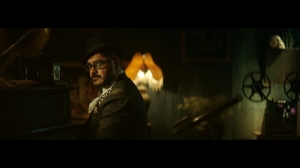
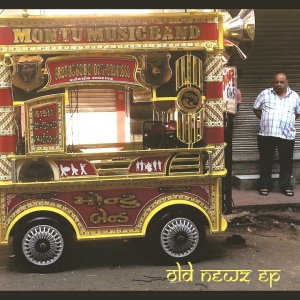

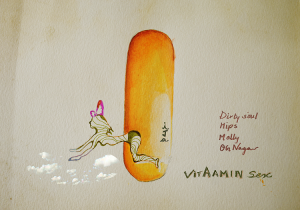
.jpg)


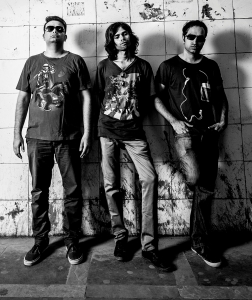

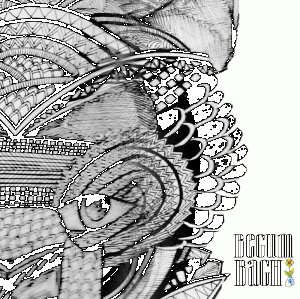
Leave a comment